Mother Plant Care and How To Keep Them Happy
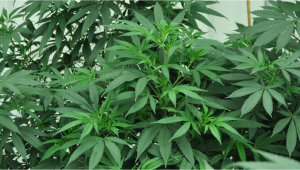
- 1. What is a mother plant?
- 2. Why should i keep a mother plant?
- 3. Who benefits more: commercial vs home growers
- 4. What should you look for in a mother plant?
- 5. The benefits of mother plants
- 6. The best way to select and how to grow a good mother plant step-by-step
- 6. a. Step 1 - choose the strain
- 6. b. Step 2 - grow the seeds and clone the plants
- 6. c. Step 3 - grow the mother plant
- 7. How to keep your mother plants happy
- 8. Training techniques to keep mothers healthy for a long time
- 9. Faqs about mother plant care
- 10. In conclusion
Mother plants are basically plants kept in the vegetative stage for as long as you can, this way you can get clones at any time and continue smoking on those special buds. Choosing and keeping a mother plant alive is quite hard, most growers stay away from this process because it takes time, effort, and space because they need to be under 18/6 forever. Although demanding and difficult, keeping a mother plant will give you access to an unlimited amount of cuttings.
These clones are identical genetic copies to the mother herself. Therefore, if you find a phenotype of a strain that you fall in love with, you’ll be able to replicate it indefinitely, without having to go through the effort of phenotype hunting to retrieve similar genetics. Not only that but starting from cuttings is highly beneficial to commercial growers and home hobbyists alike. It serves as a shortcut compared to starting from cannabis seeds and helps growers to sidestep the seedling phase—a period of the growing cycle where plants are more susceptible to disease. Below, you’ll find out exactly what it takes to sustain a mother plant, and why you should go through the effort to reap the rewards.
1. What Is A Mother Plant?
A mother plant is a cannabis plant that you keep in the vegetative stage, from which you can get cuttings or clones and these clones will grow identically to the parent. To simplify the process, you just need to cut a branch and place it in the substrate, if you’re able to keep the clone under the right conditions and provide the right amount of light and nutrients, this clone will eventually grow roots and continue to grow, becoming a copy of its parent.
All cuttings are exact genetic copies of the mother plant. Therefore, growers are highly selective about the plant they use for this purpose. The specimens will need to possess a long list of desirable traits that the grower wants to sustain. These qualities will include size, shape, productivity, cannabinoid and terpene content, disease resistance, and flowering time.
2. Why Should I Keep A Mother Plant?
A mother plant serves one purpose: provide branches for you to get cuttings and continues growing that special cultivar. Cuttings or clones will be exact copies of the parent, so by keeping a parent plant you will know exactly your plant’s size, quality, and approximate yields.
Also, starting from clones allows you to shorten the growth cycle because you are starting with clones that are a couple of weeks into the vegetative stage and you don’t have to wait until the seed germinates, the seedling comes out of the soil, and so on. Also, when starting from seed, it’s likely that at least one seed fails to germinate so when you have learned how to do it properly, starting from clones will not only save time but also it’s less likely that you will waste time and effort as you would if a seed fails to germinate.
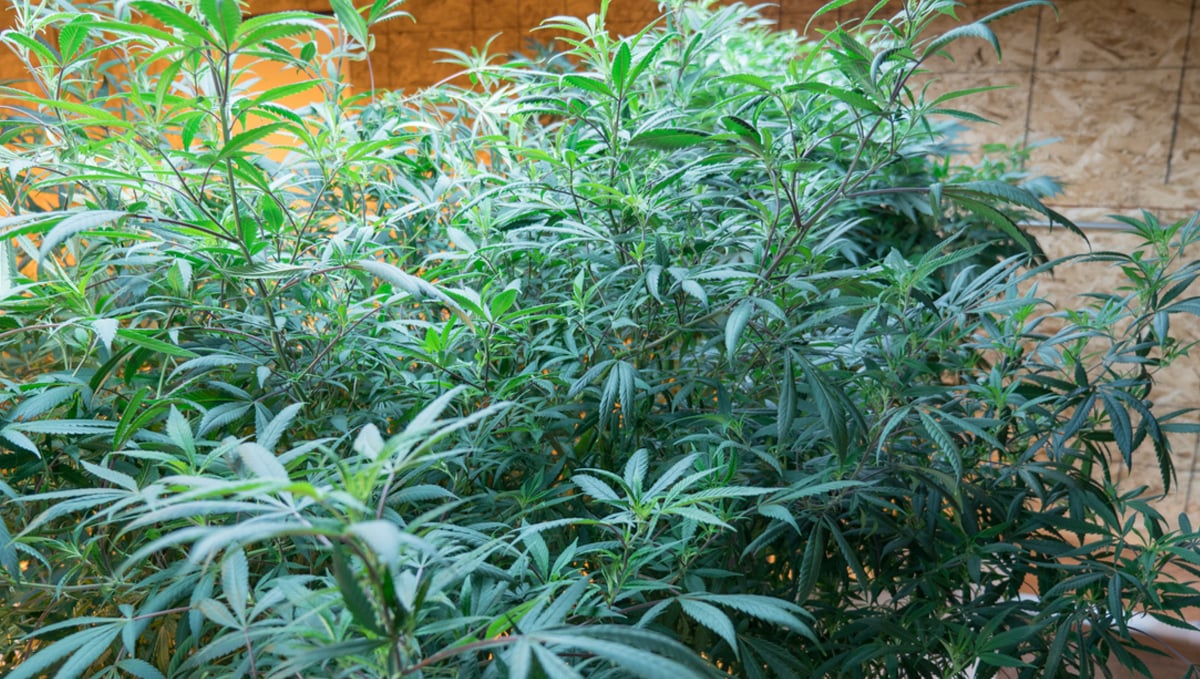
Mother plants also provide unparalleled genetic stability. If you capture a phenotype so special that you want to preserve it, there’s no other way to maintain the genetics. Even if you crossed it with a similar male, the offspring would exhibit a wide range of genetic variability; none of them would emerge as a direct copy with a completely similar trait profile to the original specimen. Some of the most famous cannabis strains in the world are preserved through cloning. In some instances, mother plants are sustained for years at a time in order to provide growers with the genetics that they love the most.
3. Who Benefits More: Commercial vs Home Growers
Commercial growers will always have far more use and space for mother plants than your average home grower. Cultivators do not have the same luxury as hobby gardeners to have a genetic variation in the garden. They utilize all the space they have and it is required that all the plants look identical so there could be a prediction done on the yield of cannabis plants. While having genetic variation might seem fun to the home grower it is a pain in the neck for the cultivator because of the customers that buy the product return for consistency. Imagine if you went to your favorite restaurant to get the best burger in the world but once the food gets to your table it does not match with what you last remember. You would probably never come back, especially if it was worse tasting.
While we know of many home growers who keep mother plants it almost always becomes more of a hassle than beneficial. For starters, you need a designated space just for your mothers, and for most people, they are just able to squeeze in their tent for veg and flower. Plus vegging mothers can grow overwhelmingly big and bushy making it hard to keep pests and pathogens away. It's easier for a home grower to just purchase clones from a reputable source rather than keep mothers.
4. What Should You Look For In A Mother Plant?
So, you wanna keep a mother plant but don’t know what makes for a good one, how do you know if your plant will produce good clones?
Well, lucky for you, this is quite easy, you just have to take a look at the plant itself.
As said above, the clones will be a copy of the parent plant so you want the mother to be the best as possible, this is why we recommend you grow a couple of seeds before deciding, as you may know, every plant is unique, even though they may be similar, their structure, smell, effect, and resin production may differ slightly so you want to have at least 5 plants (if possible) to choose the best one.
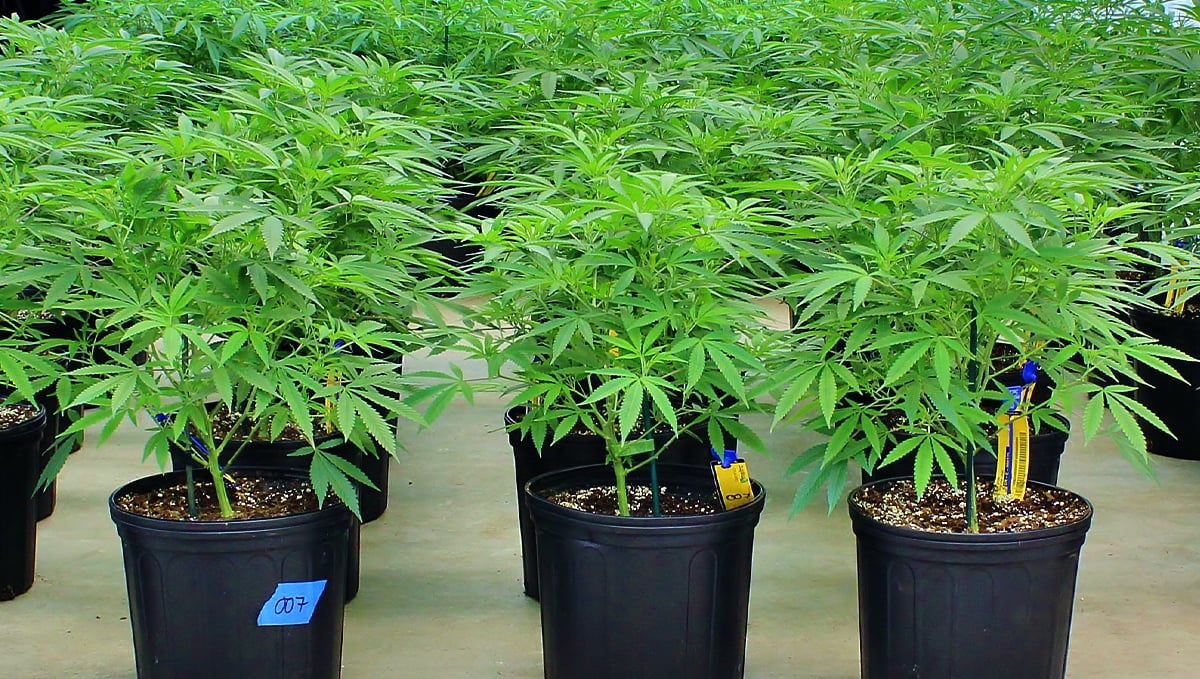
Now, choosing the best ones it’s actually up to you, you may decide on one plant over the other based on the yields, color of the buds, structure, how long it takes to flower, or any other trait so it’s really a matter of personal preference but if you still don’t know, here are a couple of things you should look for:
- Strong roots
- Good structure
- Strong stem and branches
- Density of the buds
- High yields
- Easy to grow
- Effect
- Terpene profile
- Resin production
Make sure you take your time and choose correctly because this is what you’ll be growing for a long time so if you’re not satisfied with the plants you need to choose from, start other seeds until you choose the cultivar that makes for a perfect mother plant.
5. The Benefits Of Mother Plants
There are several benefits to selecting and having your own mother plant, the most important of all is that if you time it correctly, you’ll never run out of weed.
Mother plants are usually used in a perpetual harvest, so you can plan ahead and when they are ready for harvest, your parent plant is ready to produce more clones, this will not only keep your grow tent full at all times but you’ll also be able to grow your favorite strain and have the same results every time, with no changes to the effect, flavor, and aroma.
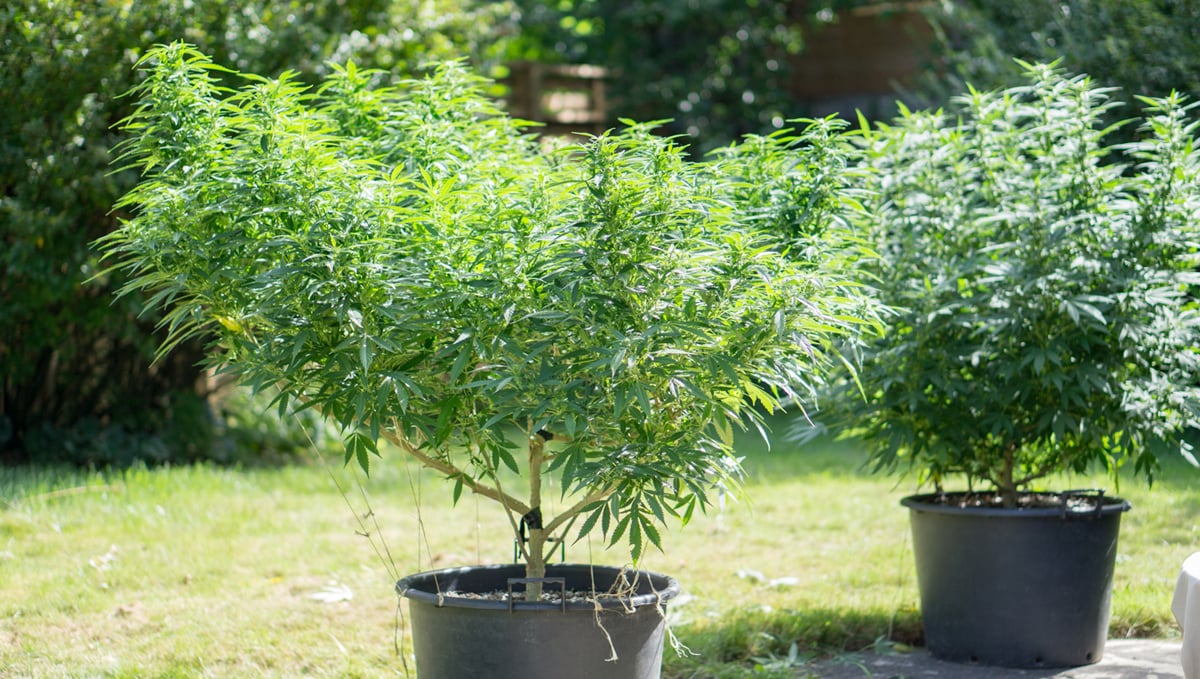
Another great benefit is that you won’t have to spend money on seeds every time you start a new grow cycle, obviously, you will have to buy seeds if you get tired of smoking the same buds forever and want to look for another mother plant but as long as you have it ready to go, you won’t be spending money on seeds.
When having multiple mother plants allows you to be able to do a true pheno hunt for strains. While you may have found that prized pheno that you already turned into a mother plant it may not grow the same as it did from seed. While it is true that a clone is an identical copy of the mother it still takes at least three or four grow cycles before you can really get comfortable with that specific1 strain to know exactly how it grows and how to maximize yield with the strain.
6. The Best Way To Select And How To Grow A Good Mother Plant Step-By-Step
Step 1 - Choose the strain
The first thing you need to do is know which strain you want to grow, this is 100% up to you, you may choose a strain based on the flavor, yields, effect, resin production, or whatever, just make sure that strain is really what you are looking for.
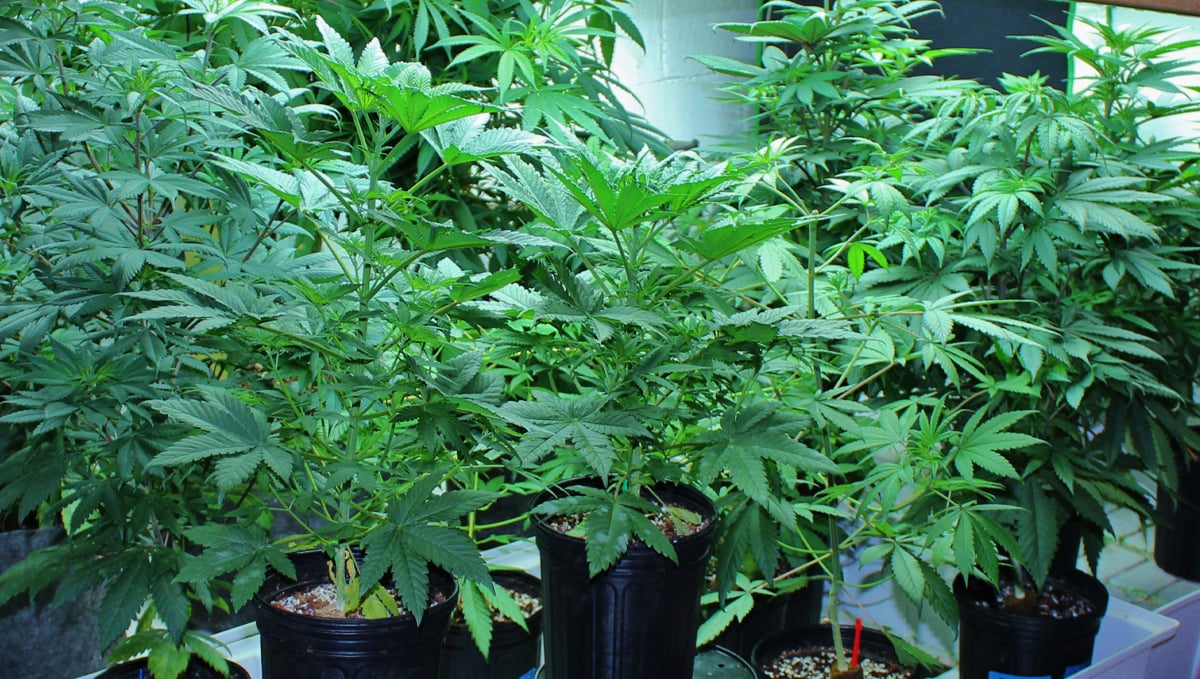
So, the thing about keeping a mother plant is finding the best phenotype of that specific strain so you should grow a couple of them and select the best one, now, most home growers don’t have a huge grow tent but it’s recommended you grow around 20 plants to find a unique cultivar, you can even grow 10 or as little as 5.
Remember that the more plants you grow, the more chances you get of getting an exceptional phenotype.
What you look for in a mother plant will entirely depend upon the reason you’re developing clones. Commercial growers often focus on what the market wants the most: high levels of THC, plenty of fruity terpenes, and highly productive specimens that churn out plenty of resinous buds. However, home growers don’t need to consider external demands. Instead, they should focus on their own preferences and what will perform best in their particular environment. For example, if you live in a humid region, it makes sense to select a mother plant with good resistance against botrytis, powdery mildew, and other fungal pathogens. Likewise, if you live in a region with a short growing season, you’ll want to capture fast-growing and cold hardy genetics.
Step 2 - Grow the seeds and clone the plants
Now that you have decided if you’re growing 20, 10, 5, or whatever you can fit in your grow space, you have to grow them like you normally would and cut some clones once your plant has grown a bit, you don’t want to take the clones when they’re too small.
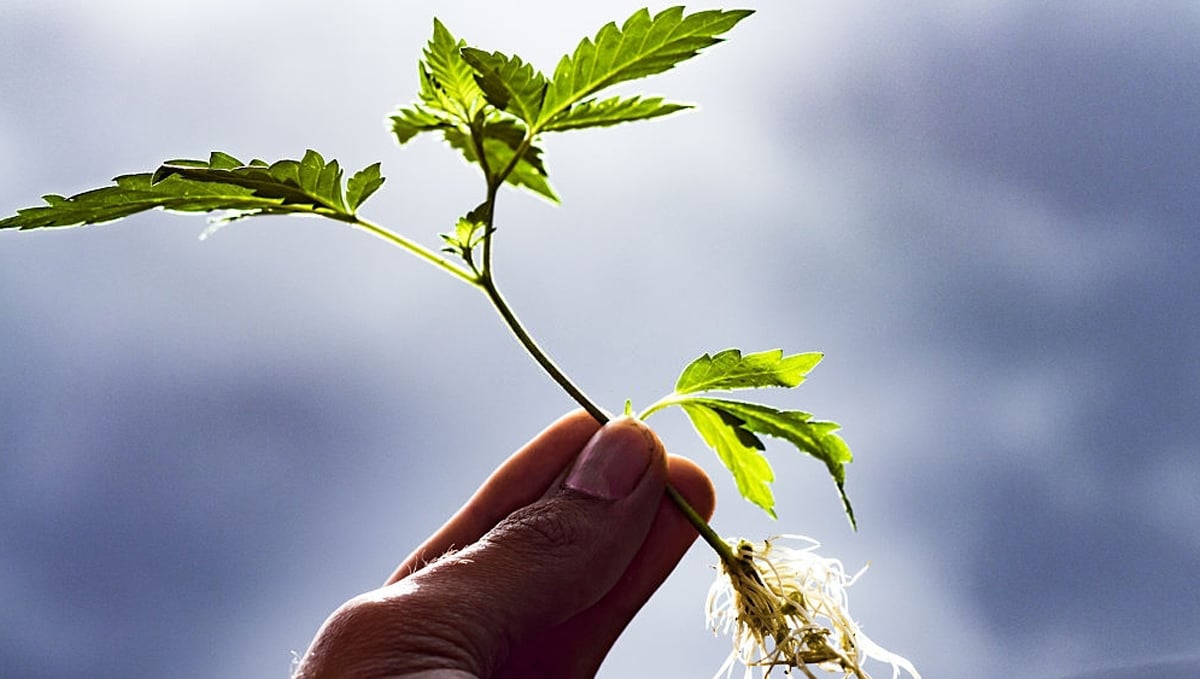
You should cut 2-4 clones off each plant to ensure some of them will survive and once your clones have rooted and are ready to grow, place them under an 18/6 cycle so they begin growing and begin flowering the mother plants, you should place a label or something so you’re able to identify them.
Once it has flowered and you know which one you want to keep as a parent, your clones should be quite big and you’re ready for the next step.
Step 3 - Grow the mother plant
Now that you’ve found the perfect mother plant, it’s a good idea to top them, have in mind that autoflowers cannot be kept like this so you will have to use photoperiodic strains to do this.
You don’t necessarily need to top your plants but topping your plants will grow more branches and make it easier for you to get clones whenever you need to, also, remember that you should top your plants every couple of weeks to prevent them from growing too much. Remember that mother plants are basically cannabis plants that are kept in the vegetative stage for as long as you can so it’s extremely important that you keep them under an 18/6 cycle and don’t change the light cycle.
7. How To Keep Your Mother Plants Happy
As said above, mother plants are cannabis plants kept in the vegetative stage for a long time, to allow you to get clones whenever you want. If you’ve grown cannabis before you may know that growing cannabis isn’t super easy, there are a couple of things that you need to ger right to be able to have a successful harvest, now imagine having to keep a mother plant healthy for more than 6 months...it can get really hard.
So here are a couple of things you need to know to keep your parent plants healthy.
Mother plant nutrients
So, first of all, all plants need to eat and with mother plants, it’s the same; There’s no such thing as the best fertilizer for mother plants because they are kept in the vegetative stage for a long time. Even though there might not be the best nutrient for growing mother plants there is the easiest. To keep plants happy for a long time using dry release organic fertilizer is the most effective. It allows you to leave mother plants alone for four weeks at a time making it significantly less labor-intensive than watering in nutrients daily or every other day. The only work that is involved when using dry release fertilizer is top dressing once a month and watering when needed.

This is why you need to provide a lot of nitrogen if you want it to thrive because nitrogen is the macronutrient that cannabis plants use to grow green matter. Keeping your mothers healthy is essential because the clones are an exact copy so if your parent plant is unhealthy, your cutting will have a hard time surviving.
Keep a mother plant small
Since your mother plant will be in the vegetative stage for a long time, it can get quite tall and you may not have enough space so to keep your plant manageable, you should apply plant training techniques such as topping or pruning.
Cut clones from a mother plant
Once your plant is big enough for you to take the cuttings, you should do it with caution because you can end up transmitting disease to your mother plant.
So first, when you are clipping off a cutting, make sure you work with sterile tools, also make sure you cut off the leaves’ tips so the clone’s energy goes where it needs it the most: the roots. When first taking clones off your mother plants to have the highest success rate you should be taking tops from the plant and never lower branching. Lower branches that are not exposed to adequate light will not have less chance of success. Also taking from the tops means the branches will be thicker allowing more surface area for roots to grow out once it has been put into a clone dome.
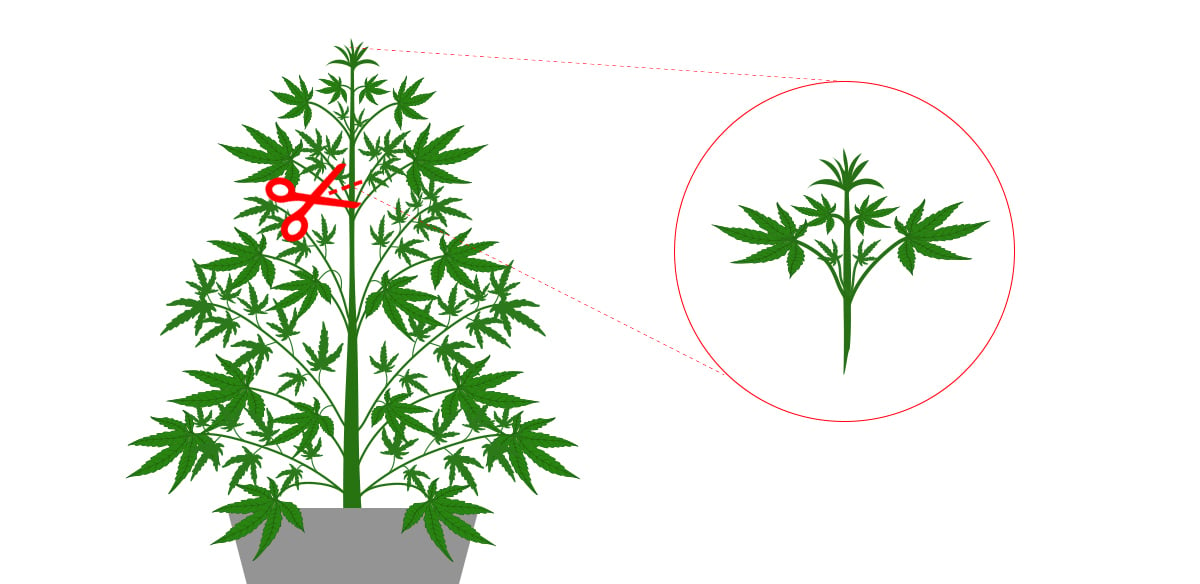
To increase the chances of surviving even more, you should dip the clones in rooting gel and quickly place them in water, although you can already plant them in your medium of choice, once the roots have reached the bottom of the current container or they have grown a bit, they’re ready to be transplanted. With enough rooting hormone, you can even make a fan leaf grow roots, which is a pretty fun experiment you can try at home!
Keep mother plants safe
When kept in the right environment, a mother plant can live for years but as time passes, the clones can get weaker and weaker so once you feel your plant is ready to retire, you can grow one of the good clones to have as a parent.
Also, due to the long time, you’ll be growing your mother plants, it’s a good idea to come up with a pest protection plan, so use a good natural pesticide and spray it every couple of days to prevent bugs or mold from killing your plant.
8. Training Techniques To Keep Mothers Healthy For A Long Time
To have mother plants for a long period of time requires a lot of skill. Most of the skill isn't keeping it watered or fed, the hardest part is just keeping up with the size of the plant. In most cases, people think bigger is better but not in the case of cannabis plants especially if they are in an inadequate grow space. When cannabis plants become too bushy this creates huge issues for pathogens to start, the most common being powdery mildew. To avoid these issues it is important to be defoliating as needed, taking off a few handfuls at a time if necessary. The best rule of thumb when growing mother plants indoors is that you want to partially be able to see through the canopy and not allow it to look like one large mass in the center of the plant. Removing leaves will allow the plant to breathe and exchange air on the inside of the canopy rather than just sitting stagnant in the center perfect for bugs and bacteria to grow.
Lollipopping your mother plants is another useful tip to avoid potential pathogens and remove wasted growth. The lower growth of the plant is not recommended to take cuttings from anyways, lower growth will always decrease your chances for success. Removing one-third of the plant is standard practice for most growers.
9. FAQs About Mother Plant Care
What are the best conditions for mother plants?
You should dedicate an entire grow tent to your mother plant, have a good extractor, and keep the temperatures around 23-26°C and the relative humidity around 60%.
What happens when mother plants get old?
Cannabis plants get old just like any other living creature in this world. Once cannabis plants reach over a certain age they become weaker all around. For example they become more susceptible to pests and pathogens which is a trait you don't want to pass down to your clones. From experience we have seen cultivation facilities push out mildew infested products because they refused to get rid of some four year old mother plants that were old and sick. Don't be like those guys and start a new mother once a year to save you the trouble that old mothers bring. We know no one wants to kill their mother but we gotta do what we gotta do to keep those little clones thriving.
What’s the best mother plant pot size?
If you’re growing your plants in a pot, you should have them in an 18-20L pot at least because they may become root-bound and if this happens, you’ll need to use a sterile knife or scissors to remove the tip of the roots and it can have bad consequences if done incorrectly.
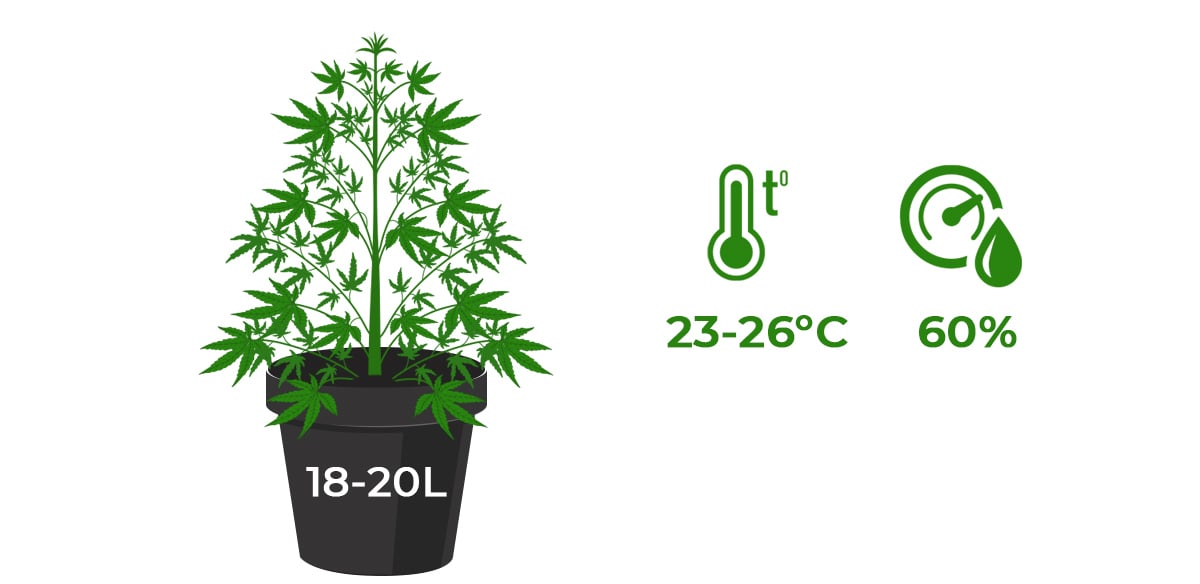
What is the best lighting schedule for mother plants?
If you plan on keeping your mothers for a long time it is not necessary to have them on an 18/6 schedule. To save some money on the electric bill and also keep the plant from growing too big too fast you can set your lights up for 14/10 or anything that works with your schedule. As long as you avoid twelve hours of darkness because when lights go to 12/12 this will initiate flowering. This may not sound like enough but for a vegging mother plant, it's all that's required to keep a healthy and happy plant.
What’s the best light for mother plants?
You can grow your plants under a full-spectrum LED but if you wanna keep it simple, use a grow light with a blue spectrum suck as MH or CFL, you should provide around 250w due to the size your plant will have.
How often can you take clones from a mother plant?
Remember that they can produce an unlimited number of clones so you can take as many cuttings as you need to, just make sure you don’t overdo it, also remember that it’s super important you let your parent plant rest at least 15 days in between cloning. Before taking a cut from a cannabis plant you must ensure that the plant is not sick or has any stressors, this will transfer to the clone creating an extremely weak plant. It is also best practice to take the cutting one day after watering the mother for the best growth possible.
10. In conclusion
Selecting and maintaining a good mother plant is the best way to never run out of that weed that has a special place in your heart, it’s a great way to maintain a top-quality perpetual harvest.
If you have experience with mother plants and have some tips and tricks to help fellow growers, feel free to leave a comment in the comment section below!
External references
- ENVIRONMENTAL CONDITIONS OF THE MOTHER PLANT AND THE PEANUT SEEDS QUALITY. - Fernandez, Elena & Arnosio, Nicolas & Morla, Federico & Giayetto, Oscar & Cerioni, Guillermo. (2013).
- Plant regeneration from young leaves in loquat (Eriobotrya japonica L.) using young grafted seedlings as mother plants. - Deng, Renju & Wang, Yongqing & Fan, Jianxin & Cui, Wenning. (2020).








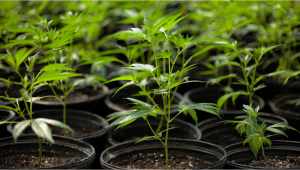
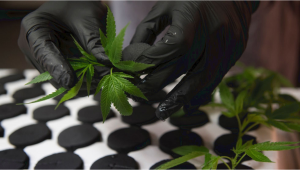

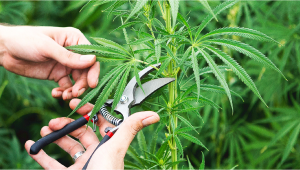
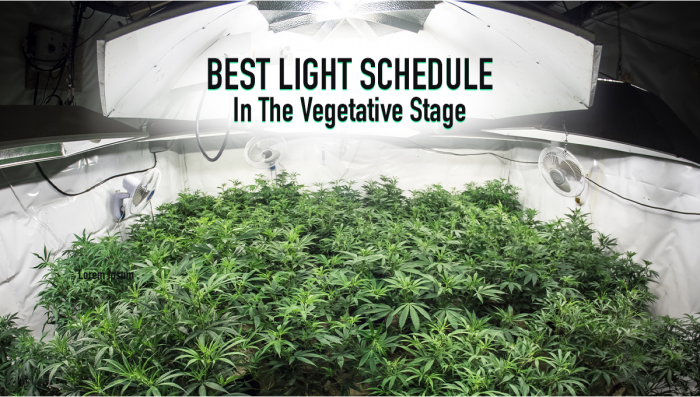

Comments